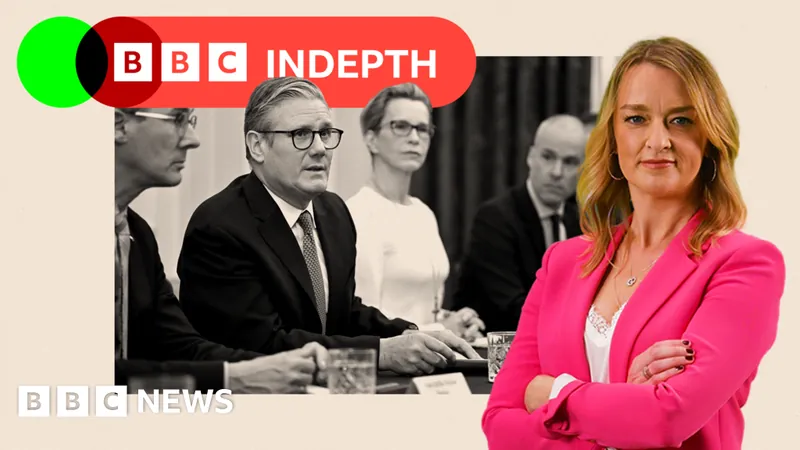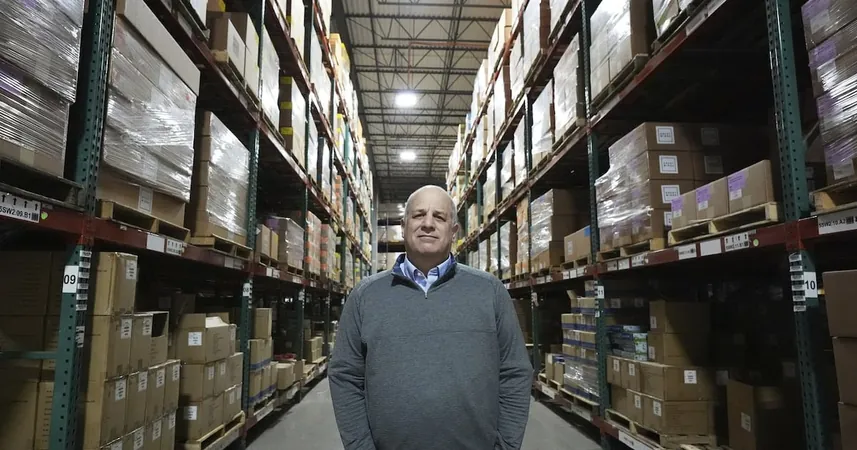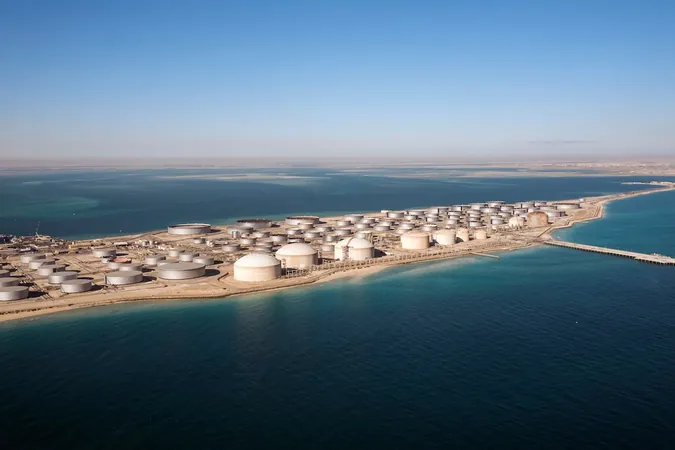
Starmer's Strategic Response to Trump Tariffs: A Balancing Act of Action and Caution
2025-04-05
Author: Emily
As the UK grapples with the ramifications of President Donald Trump's newly imposed tariffs, Prime Minister Sir Keir Starmer finds himself in a challenging position of needing to both slow down and accelerate the government’s response. This unexpected trade escalation comes amidst an already volatile global trade landscape, particularly in the escalating tensions between the US and China, creating ripples of anxiety within British economic circles.
On the day of the announcement, Starmer and his cabinet members were closely monitoring the situation from various locations, including Chequers, the prime minister’s country residence, and the Business Secretary’s office at Old Admiralty Arch—symbolically tied to Britain's naval history and the protection of trade routes.
Trump's tariffs, set at 10% for a broad range of imports including those from the UK, and adjusted tariffs on certain nations like China, have sent stock markets into a tailspin. The UK government is currently exploring options to mitigate the potential fallout, with negotiations for a trade deal with the US potentially offering a glimmer of hope amidst the uncertainty.
Discussions have included proposals to relax regulations on electric vehicles, amend tech taxes, and adjust online safety rules, although progress has been stymied in the wake of the tariff announcement. Now, the onus is on the US to re-engage with UK negotiators, with officials expressing cautious optimism for a deal to emerge, particularly a foundational agreement that avoids the meticulous detail of a comprehensive trade arrangement.
However, as uncertainty looms, government ministers acknowledge that they are prepared for all scenarios. A secret committee had previously deliberated potential responses prior to the tariffs. The government's current strategy appears to lean towards a restrained approach, indicated by their reluctance to directly retaliate with new tariffs of their own. This is largely due to the potential impact on jobs across constituencies, where ministers are aware that many local economies could suffer severe consequences.
Interestingly, there seems to be a unifying sentiment within the business community—no major player has voiced opposition to the government's cautious stance. Following the backlash to previous National Insurance hikes, the government is keen to maintain trust with businesses and has engaged in dialogue to gauge their readiness and expectations.
While the administration is not rushing to retaliate, it is simultaneously looking to expedite existing initiatives, such as the long-awaited Industrial Strategy, which aims to attract investments to the UK. The Chancellor is assessing the feasibility of accelerating the Spending Review scheduled for June, hoping to seize the current geopolitical tension as an impetus for immediate action.
Starmer’s government, now in its initial term, has faced criticism over the pace of its reforms and the perceived lethargy in addressing pressing issues. Observers question whether a more proactive, radical approach akin to that of the US administration could be necessary for the UK to effectively compete on the global stage.
Ultimately, while the government is striving to soften the blow of Trump’s tariffs, the realization that total insulation from international disruption is unattainable looms large. As Sir Keir Starmer remains engaged in critical talks, the political landscape continues to shift, leaving ministers with a looming question: How best to navigate this turbulent era of international trade?









 Brasil (PT)
Brasil (PT)
 Canada (EN)
Canada (EN)
 Chile (ES)
Chile (ES)
 Česko (CS)
Česko (CS)
 대한민국 (KO)
대한민국 (KO)
 España (ES)
España (ES)
 France (FR)
France (FR)
 Hong Kong (EN)
Hong Kong (EN)
 Italia (IT)
Italia (IT)
 日本 (JA)
日本 (JA)
 Magyarország (HU)
Magyarország (HU)
 Norge (NO)
Norge (NO)
 Polska (PL)
Polska (PL)
 Schweiz (DE)
Schweiz (DE)
 Singapore (EN)
Singapore (EN)
 Sverige (SV)
Sverige (SV)
 Suomi (FI)
Suomi (FI)
 Türkiye (TR)
Türkiye (TR)
 الإمارات العربية المتحدة (AR)
الإمارات العربية المتحدة (AR)